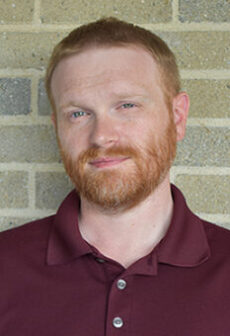In the Spirit of Christ are life and rest

Shawn Reeves
By Shawn Reeves
14th Sunday in Ordinary Time/July 5
Zechariah 9:9-10; Psalm 145:1-2,8-9,10-11,13-14; Romans 8:9,11-13; Matthew 11:25-30
I have bouts with insomnia. Often my mind can find no rest. Problems, planning, tasks, and obligations weigh it down and push sleep away. It is a frustrating and fatiguing phenomenon. In our first reading, God announces a message of rest. Both chariot and warrior’s bow are “banished.” A cessation of hostility is instituted. The instruments of war are terminated. “A just savior,” He adds, comes “riding on an ass.”
Certainly, this prophecy of Zechariah was literally fulfilled in the historical event of Jesus entering Jerusalem riding an ass. In fact, not only do all four Gospels record this event, Matthew and John also both cite Zechariah when they report it. It was the ancient illustration of a victor king, taking possession of a city through peace rather than violence. In bloody conquest, one would ride in on a warhorse. In peaceful victory, he would ride on “the foal of an ass.” In doing so, both the majesty and meekness of Jesus are displayed before all.
But the prophet’s language describes also the spiritual disposition of Jesus toward His followers. He does not race upon them with a charge of conquest. He does not press them into submission. Rather, He is “meek and humble of heart,” employing invitation, rather than oppression. And in this way He rides into the human heart in the same manner He rode into Jerusalem. For, “The LORD is good to all and compassionate toward all his works.”
“MY YOKE IS EASY”
In today’s Gospel, Jesus demonstrates this very compassion. Utilizing the imagery of a yoke and addressing those “who labor and are burdened,” Jesus comments on the difficulties attached to the Mosaic Law and the obligations toward that Law. Indeed, the narrative continues with Jesus combatting idiosyncrasies of the Mosaic Law in the very next chapter.
The yoke is a conditioning tool for livestock. It directs and creates boundaries. It imposes and restricts behavior. What the yoke is physically, the Mosaic Law was spiritually. The yoke was placed upon the shoulders of an animal. The Law was placed upon the ears of the people. And both externally levied hefty demands.
But seeing the people beleaguered by certain features of the Law, Jesus sympathetically offers them respite, animating the Psalmists words, “the LORD lifts up all who are falling and raises up all who are bowed down.” Jesus promises “I will give you rest.” Yet, He immediately announces not the removal of yokes altogether but the substitution of a new yoke: “take my yoke upon you . . . for my yoke is easy, and my burden is light.”
How is this a solution? How is advocating an alternate tool of habituation an avenue of rest?
WE “BELONG” TO CHRIST
It is by the Holy Spirit that we “belong” to Christ, as our second reading declares. If the first yoke is the Mosaic Law, this second yoke is “the law of the Spirit of life in Christ Jesus,” as noted earlier in that same chapter. Whereas this first yoke (the Mosaic Law) merely directed the people away from evil actions, the second yoke (the Holy Spirit) directs us toward righteousness and supplies supernatural life: “the one who raised Christ from the dead will give life to your mortal bodies also, through his Spirit that dwells in you.”
And while the first yoke (the Mosaic Law) was an external edict of conduct, the second yoke (the Holy Spirit) is an internal guardian and accomplice in righteousness: “the Spirit of God dwells in you . . . if by the Spirit you put to death the deeds of the body, you will live.”
This is what constitutes the ease of this yoke and the meagerness of its burden — this yoke is not a mere mandate but a divine advocate. “Take my yoke upon you and learn from me,” Jesus commands.
Following Christ is not an absence of obligation and a void of commandments. It is an encountering of those obligations and commandments under the direction and providence of the Holy Spirit. In the Spirit of Christ are life and rest.
—
SHAWN REEVES has served as the director of religious education at St. John’s Catholic Newman Center in Champaign since 2001. He and his family attend St. Elizabeth of Hungary Church in Thomasboro.





